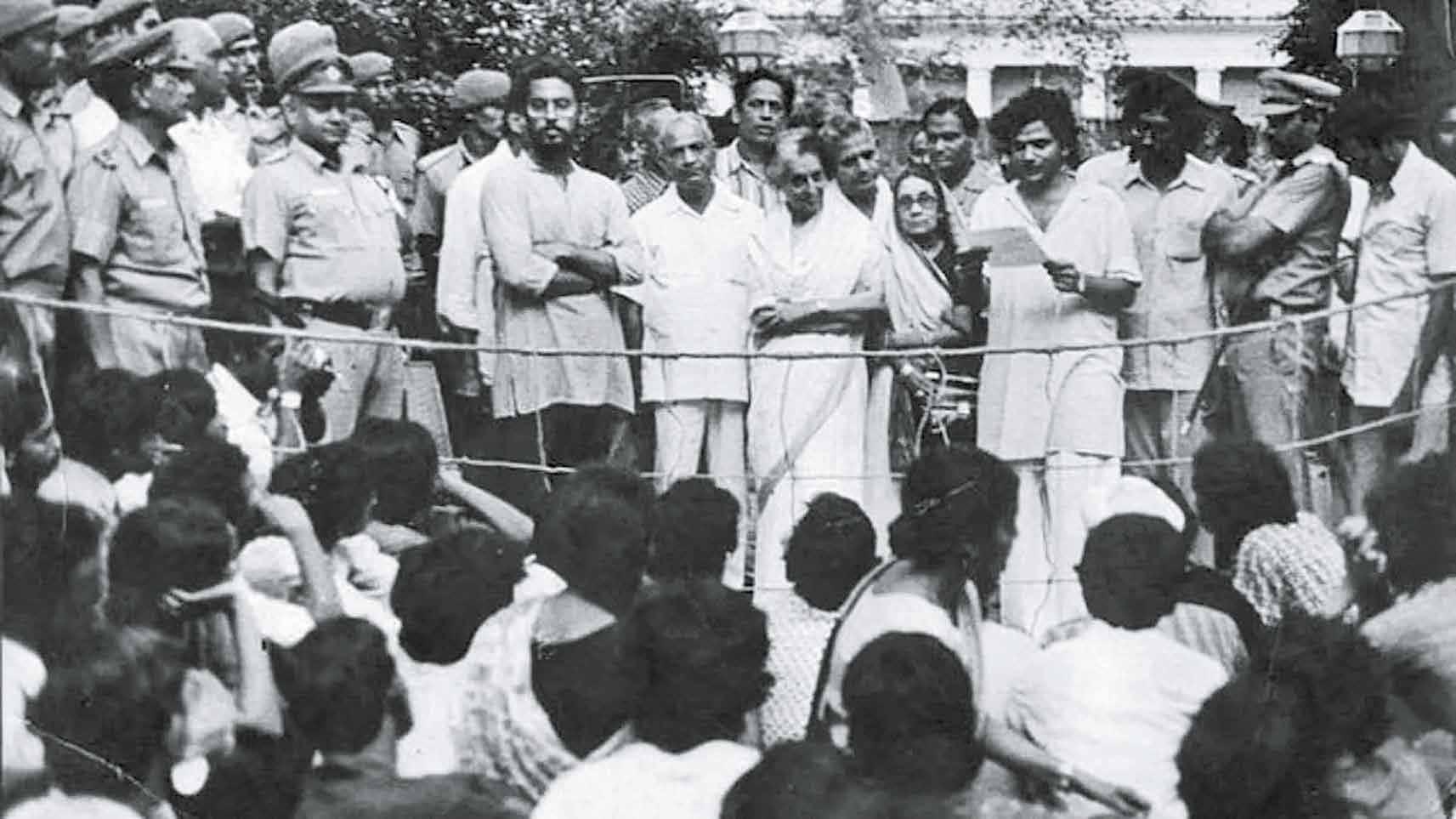Growing Up with INDIRA GANDHI

THE death of Sitaram Yechury threw up a black-andwhite photo of him in 1977, reading an indictment of Indira Gandhi in her presence. In that photo, Yechury, the president of the Jawaharlal Nehru University (JNU) Students' Union at the time, is asking that she resign as chancellor of the university because she had lost the post-Emergency general election, and she held that honorary office by virtue of being the prime minister of India. Yechury had been jailed during the Emergency and this blackand-white picture of a tousled student leader in an oversized kurta-pyjama, publicly holding a prime minister to account as she looks on, smiling, seems an image from another country...the safely distant past.
I was 20 when that photo was taken, five years younger than Yechury and much too prudent to have risked imprisonment through my second and third years as an undergraduate in Delhi University, but I remember the sense of release when All India Radio announced in an evening broadcast that the Congress (I) had lost the election, and Gandhi, her seat. I was living in Delhi University at the time, with my aunt, who was a lecturer there. When I relayed the news, she was still for a moment. Hai bechari (poor thing), she said, and went back to combing her hair.
For her and my parents' generation, Indira was still Panditji's daughter. Even as they were oppressed by her authoritarianism, she remained a living reminder of the early promise of the republic. I was nine years old when she became prime minister. My generation was defined by her time at the top, from 1966 when she succeeded Lal Bahadur Shastri when he died unexpectedly in Tashkent, to 1984 when she was assassinated. My cohort's understanding of the purpose of the Indian state and India's place in the world, our idea of India was either constituted by her government's rhetoric or shaped by our opposition to it.
Diese Geschichte stammt aus der October 01, 2024-Ausgabe von Outlook.
Starten Sie Ihre 7-tägige kostenlose Testversion von Magzter GOLD, um auf Tausende kuratierte Premium-Storys sowie über 9.500 Zeitschriften und Zeitungen zuzugreifen.
Bereits Abonnent ? Anmelden
Diese Geschichte stammt aus der October 01, 2024-Ausgabe von Outlook.
Starten Sie Ihre 7-tägige kostenlose Testversion von Magzter GOLD, um auf Tausende kuratierte Premium-Storys sowie über 9.500 Zeitschriften und Zeitungen zuzugreifen.
Bereits Abonnent? Anmelden

Education for the Greater Good
UEM Jaipur in its Mission to Provide Global Exposure with Innovative Teaching Techniques

Delivering Care Everywhere
Innovative healthcare, accessible to all communities across India

First Model Hospital for Global destination with New Benchmarks
Yashoda Medicity is a holistic ecosystem, a convergence of medical brilliance, technology, education, and patient-centred values, poised to redefine healthcare delivery in India and beyond

Green Growth: A New Normal
Indian real estate embraces sustainable design, net-zero goals and eco-friendly innovation to shape resilient, future-ready urban landscapes.

Precision Meets Expertise
Pioneering ROBOTIC Knee & Hip Replacements, Dr (Prof) Anil Arora is redefining mobility with advanced technology and compassionate care

The 5 Best Monsoon Treks in Maharashtra
This curated list of the best monsoon treks in Maharashtra highlights both natural beauty and historical significance of the state while also being ideal for lovers of adventure

Batwoman
Women have gatecrashed a stag party, smashing their way through the sexist walls of bias and invisibility to live their cricket dreams, no more in the margins but in the spotlight

Elite Bench
Why diversity and inclusion in cricket remain elusive
'Write What Should Not be Forgotten'
Chilean-American author Isabel Allende’s latest book My Name is Emilia Del Valle, set during the 1891 Chilean civil war, is the story of a young woman’s search for her identity.

It is Lonely at the Top
Chief Minister Omar Abdullah faces rebellion from within the National Conference. Lieutenant Governor Manoj Sinha is breathing down his neck. His political rival, Mehbooba Mufti, is sharpening her attack
